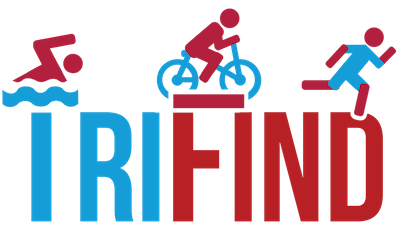4 Ways You Can Prepare for 2014 Excellence

Your season has ended, you’ve (hopefully) taken a little time off and the holiday season is quickly approaching. This can only mean one thing. The triathlon preseason is here.
Think of the preseason as a new beginning and prime opportunity to start working toward your goals for next year. Are you going long for the first time? Do you want to set a new PR or land on the podium? Below are a few things you can do to prepare for 2014 excellence.
<!--[if !supportLists]-->
1. <!--[endif]-->Get a Coach
The quickest way to see improvement is to get a coach. It doesn’t matter if you’re a seasoned triathlete or a complete newbie. There is no question. Getting a coach is the best investment you will make. Yes, even better than a fancy new bike, set of race wheels or power meter.
a complete newbie. There is no question. Getting a coach is the best investment you will make. Yes, even better than a fancy new bike, set of race wheels or power meter.
This is the perfect time of year to start working with a coach because you will have plenty of time to prepare properly for next year’s A race(s). By starting now you’ll be able to work with your coach to improve your limiters and also implement a strength conditioning program. Being proactive will pay off big time!
Having a coached is an educational experience and takes the guess work out of what you need to be doing. Also, assuming your time is valuable, a coach will ensure you are training efficiently and maximizing the time YOU have available to train.
Hope is not a strategy. Make the investment in yourself and prepare for an incredible 2014.
2. Work on your biggest limiter
Everyone has a weakness. And no one really likes doing things they’re not good at. However, the only way to improve is to give a little extra attention to your weakness. The preseason is a perfect time to spend a block of training (4-8 weeks) working on your limiter.
 What does this mean? It means instead of spreading your training time equally between swimming, biking and running you will spend an extra 2 or 3 days a week on the area you want to improve. During this time you can put the other two disciplines on “maintenance mode.”
What does this mean? It means instead of spreading your training time equally between swimming, biking and running you will spend an extra 2 or 3 days a week on the area you want to improve. During this time you can put the other two disciplines on “maintenance mode.”
For example, if swimming is your weakest link, spend a block of training where pool time is priority. No one will improve their ability in the water swimming only 2 or 3 days a week. For 4-8 weeks (depending on how much time you have to commit) plan to swim 4, 5 or 6 days a week. During this time, be sure to mix up your workouts. Integrate different swim sets with varied intensity levels and don’t forget to spend time drilling and working on your mechanics.
3. Strength Conditioning
The first year Mark Allen incorporated strength training into his training regime he won the “Triple Crown” of Triathlon (the Nice International Triathlon, the Zofingen duathlon and the Hawaii Ironman) [Mark Allen is a 6x Ironman World Champion]
A strength or resistance training program is one of the most commonly overlooked means to improve endurance athletic performance. The number one reason for triathletes to incorporate strength work into their preseason training is injury prevention. Additionally, a well-executed program will enhance strength, muscular endurance and power. While ALL athletes will benefit from a strength program, those over the age of 35 will find this most beneficial as their natural muscular strength and hormone levels are no longer the same as it was in their 20’s.
The time investment in strength training is minimal, but the payoff is big. By incorporating weights 2-3 times a week at 30-45 minutes a clip, you will most certainly see the benefits in your training and racing during your season. Be sure to do a brief warm up before hand and don’t forget to incorporate core work.
Not sure where to get started? It is best to contact a trusted triathlon coach to help structure an effective strength program for you and your goals. Personal trainers are another option, but make sure they understand triathlon and account for sport specific strength requirements. If this route doesn’t suit your budget, a little internet research can help point you in the right direction.
4. Cross Train
It goes without saying that it is important to spend time swimming, biking and running. However, it is just as important to take time away from these activities. Cross training is the perfect way to stay active, have fun and gain a little supplemental fitness.
as important to take time away from these activities. Cross training is the perfect way to stay active, have fun and gain a little supplemental fitness.
Additionally, cross training will give your body a rest from repetitive stress and help maintain body balance. Then, when it’s finally time to get back on the saddle or in the pool, you’ll be renewed and refreshed from your time away.
Depending on where you live a few favorite cross training activities include snowshoe running, cross country skiing, yoga, mountain biking, paddle boarding, surfing, and rock/ice climbing. Remember, to always have fun and don’t be afraid to try new things.
Written by: Chris Kaplanis, Ridgewood Tri Athlete (RTA)
Chris Kaplanis is the co-founder and assistant head coach at Ridgewood Tri Athlete (RTA), a multisport coaching business and triathlon club based in New Jersey. RTA works with athletes from across the country, offering a variety of services to get you faster, fitter and on track to successfully accomplish your goals.


